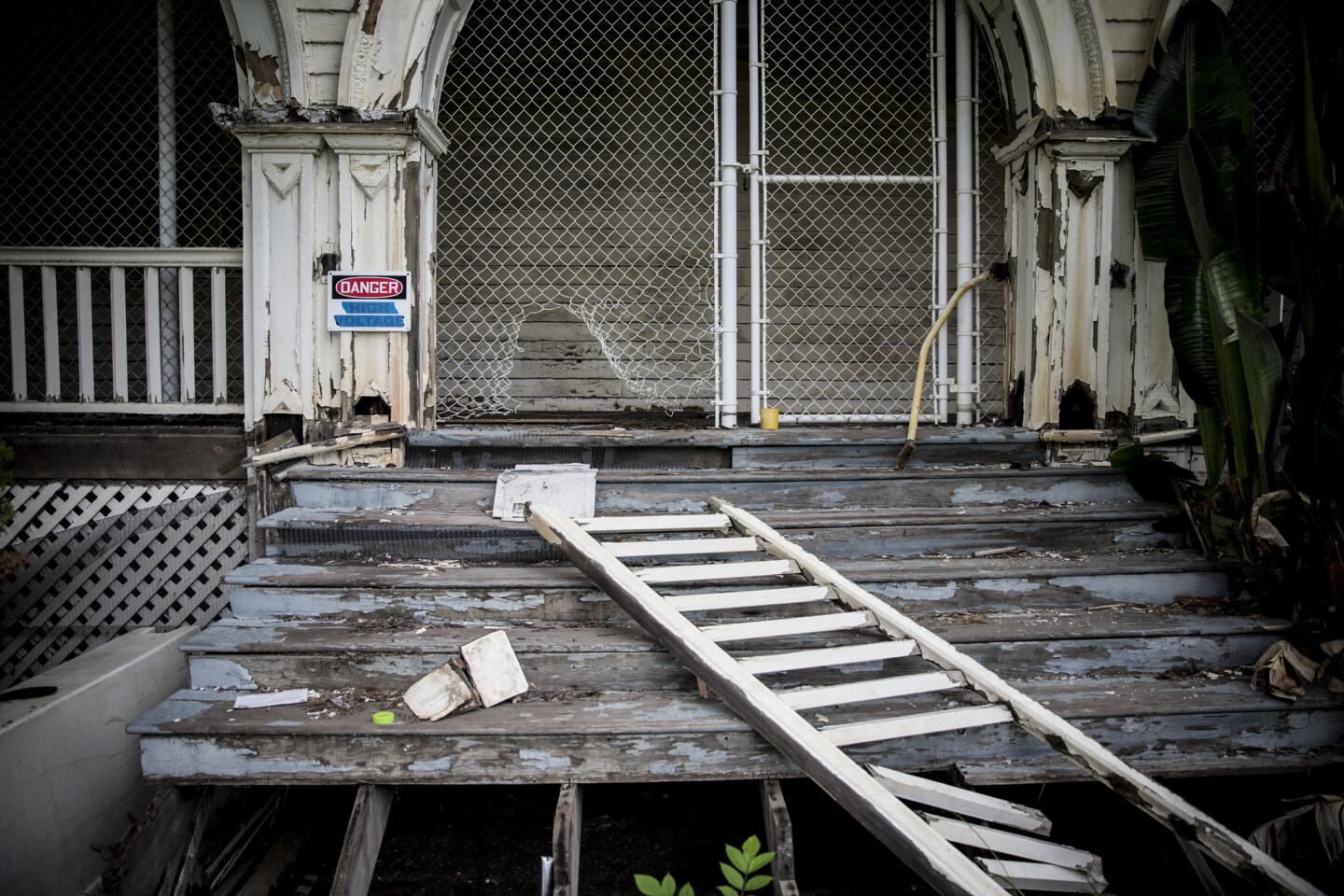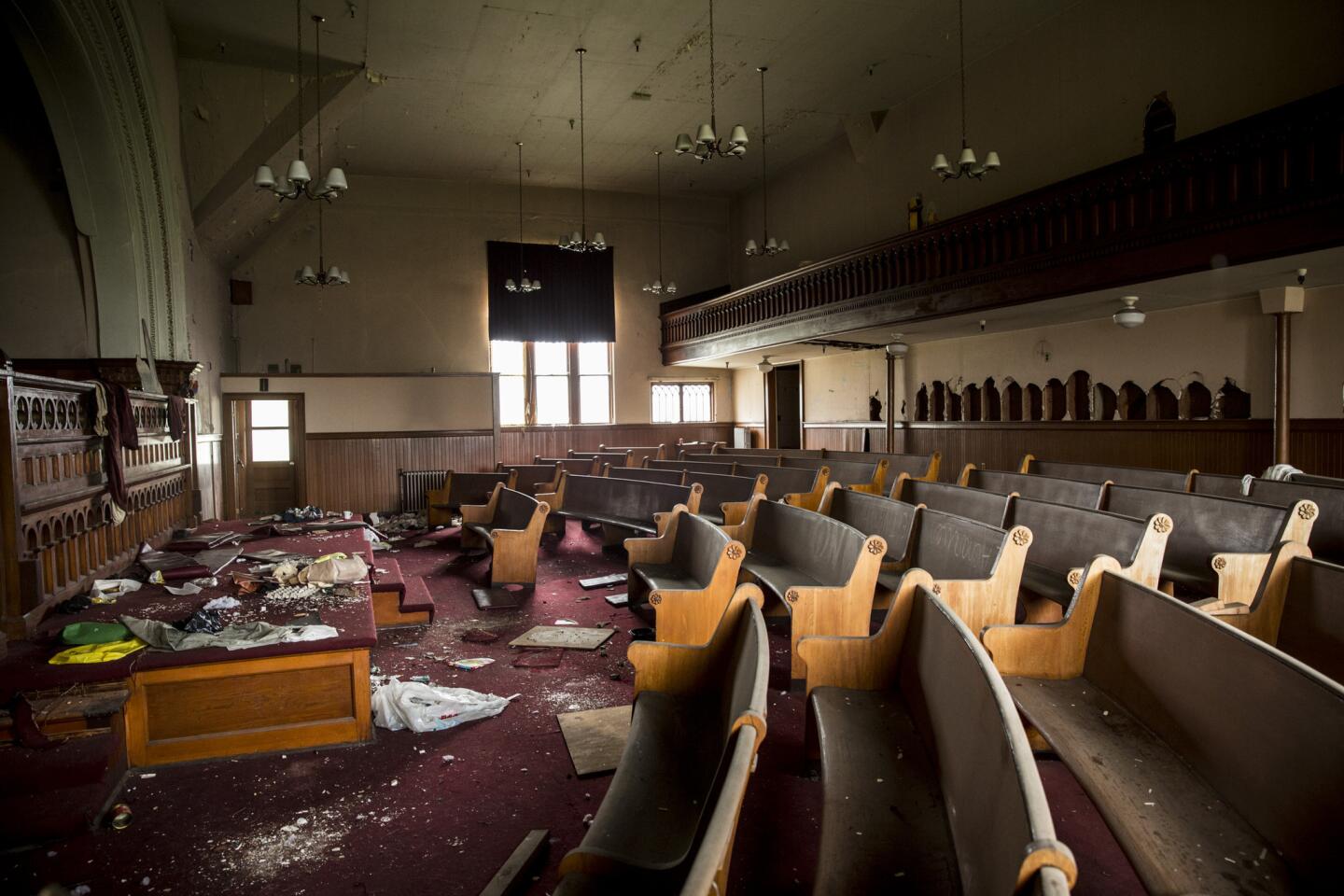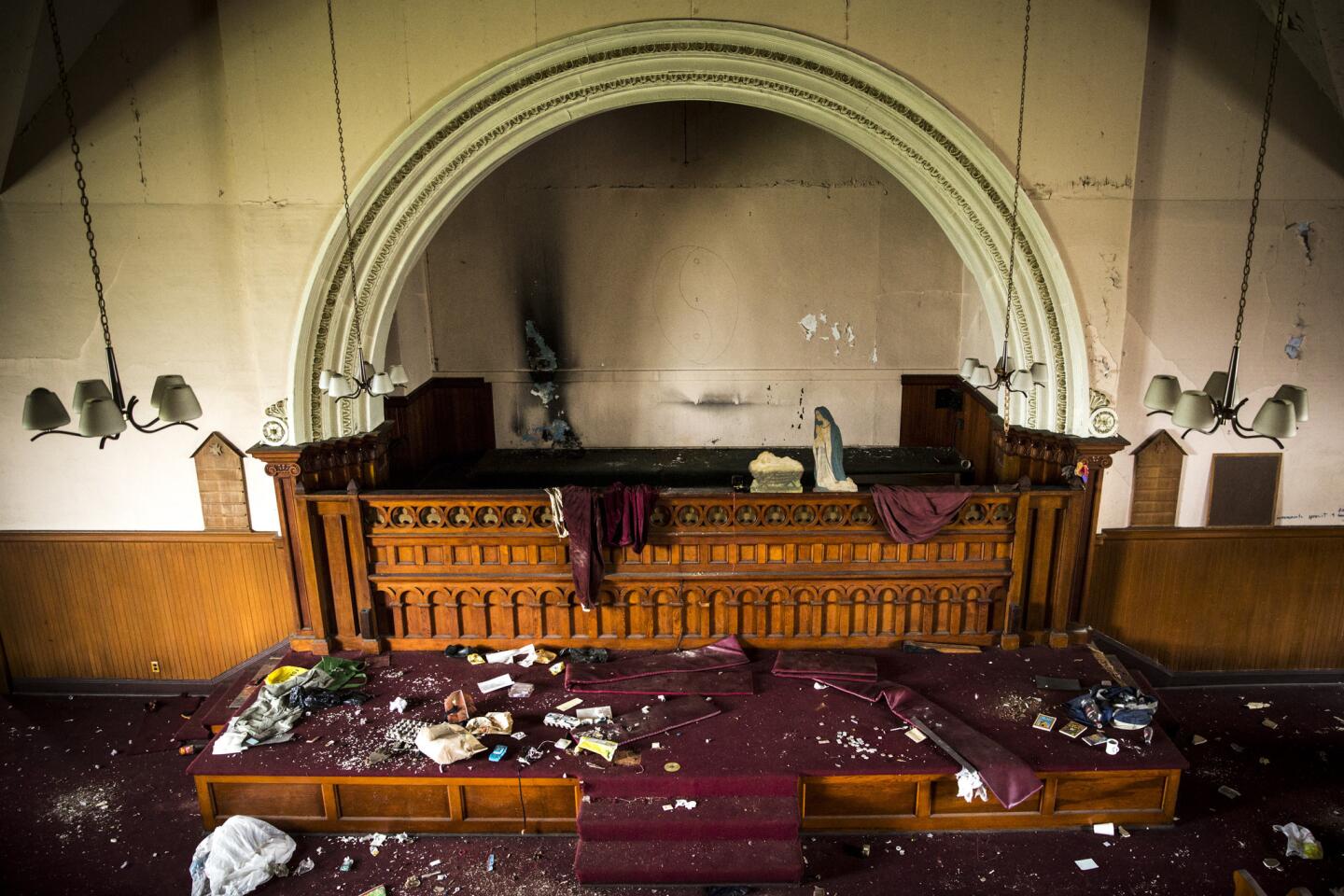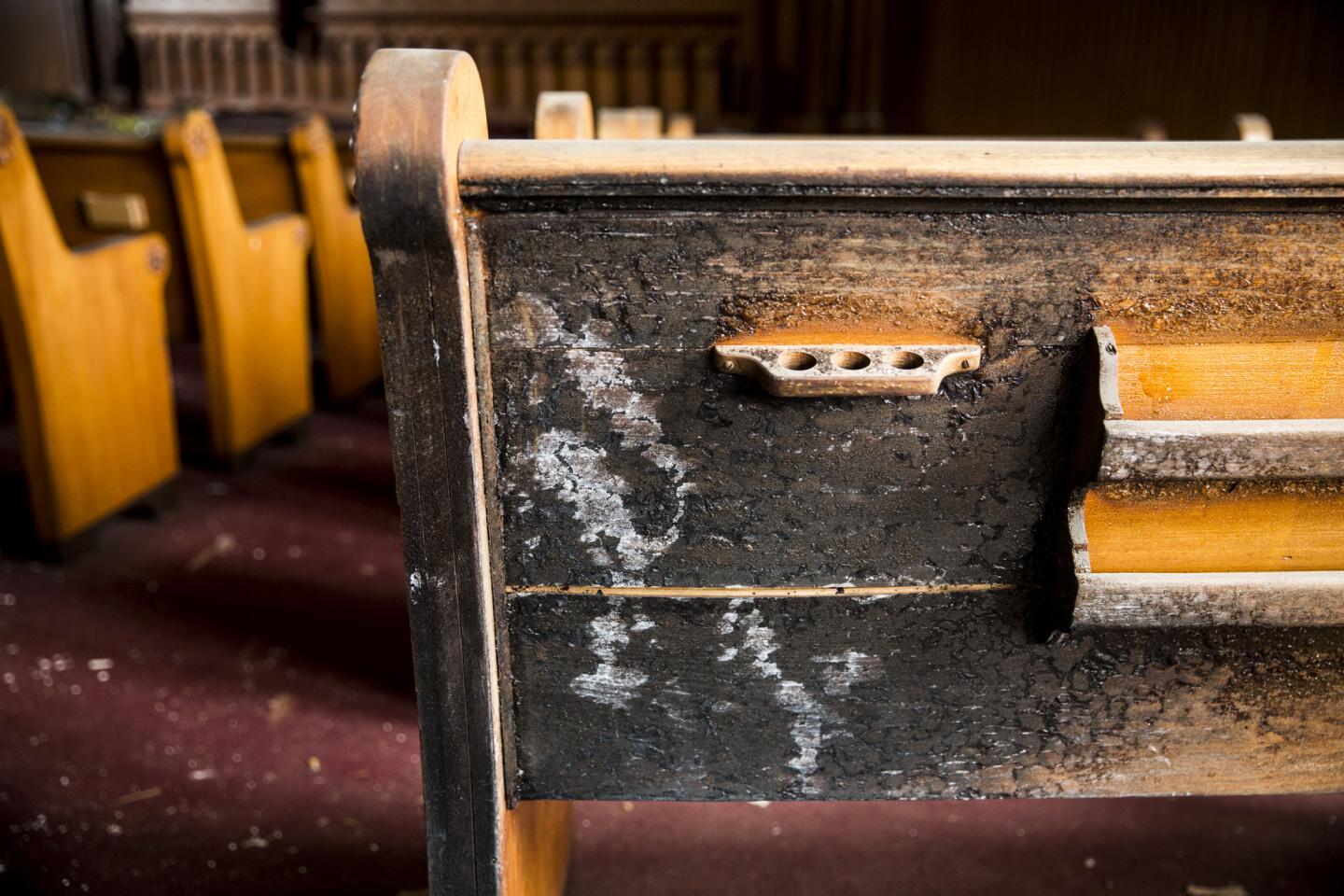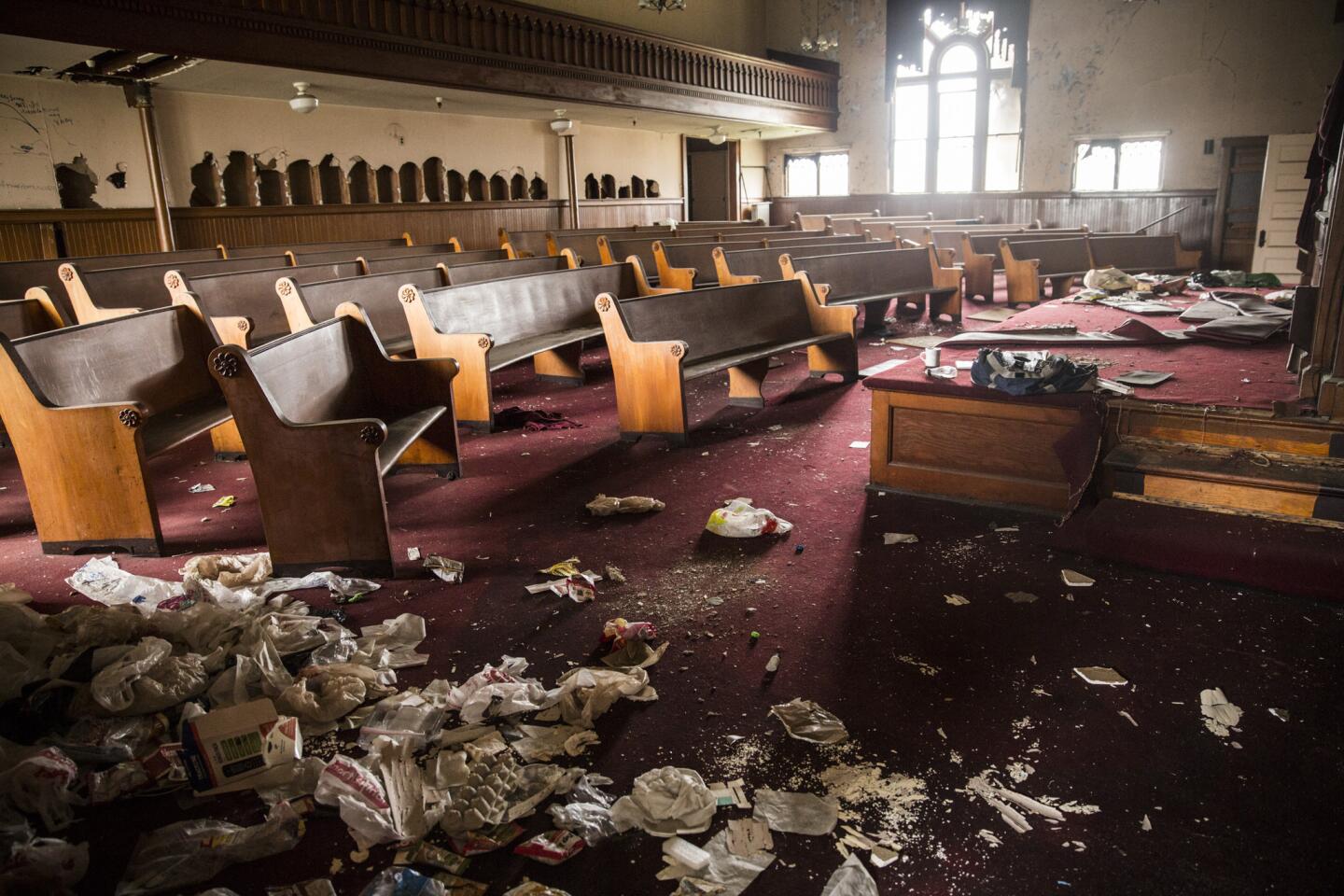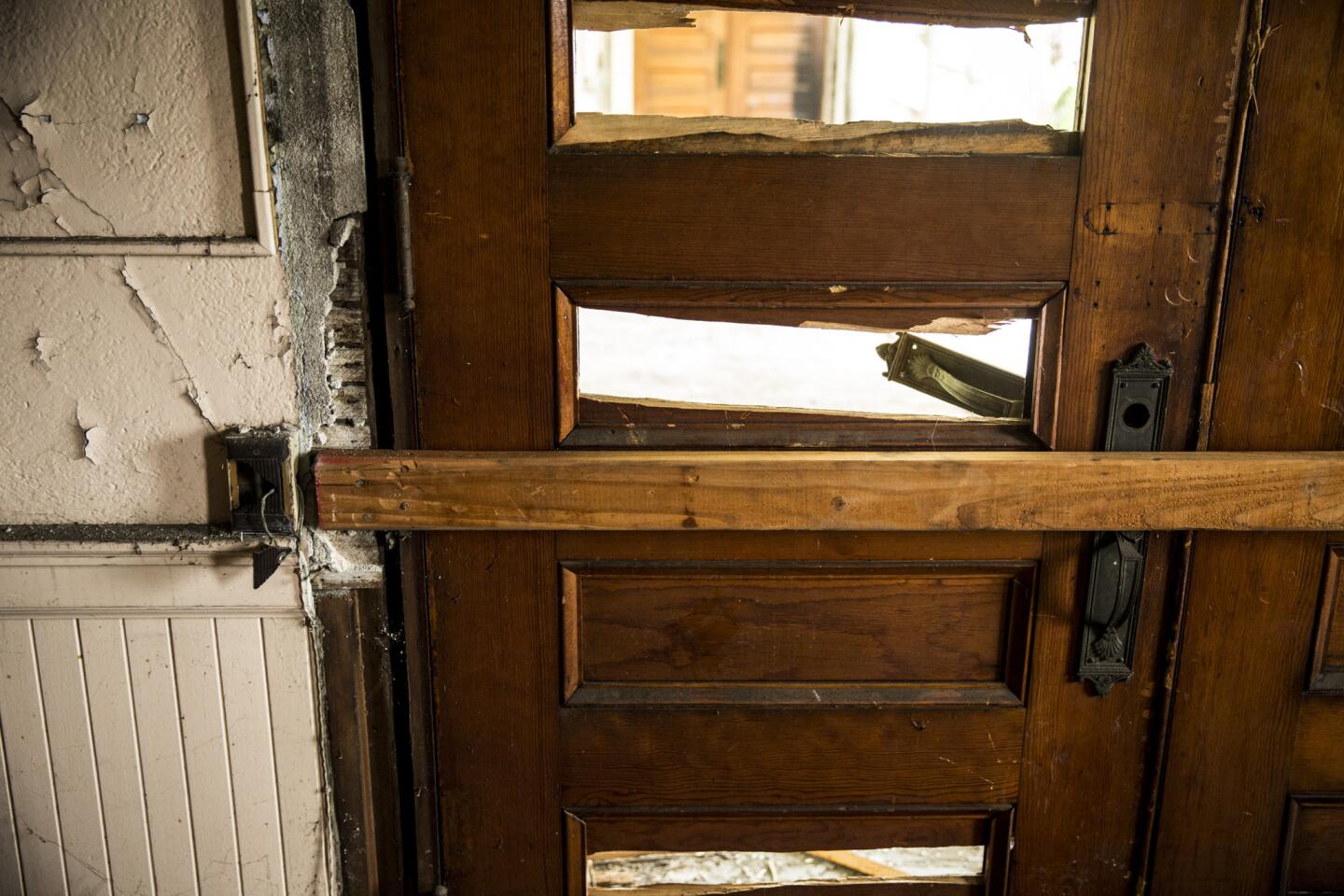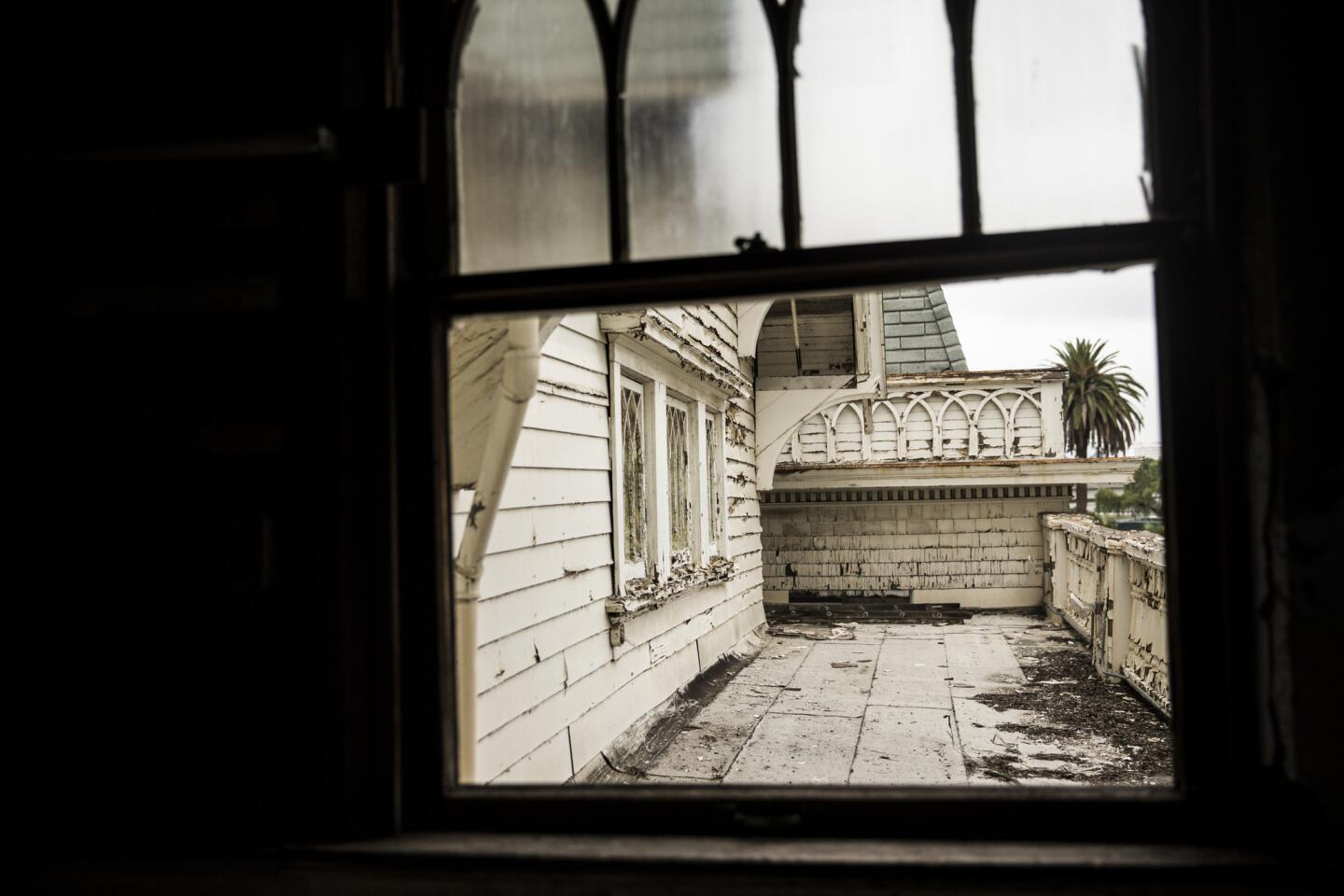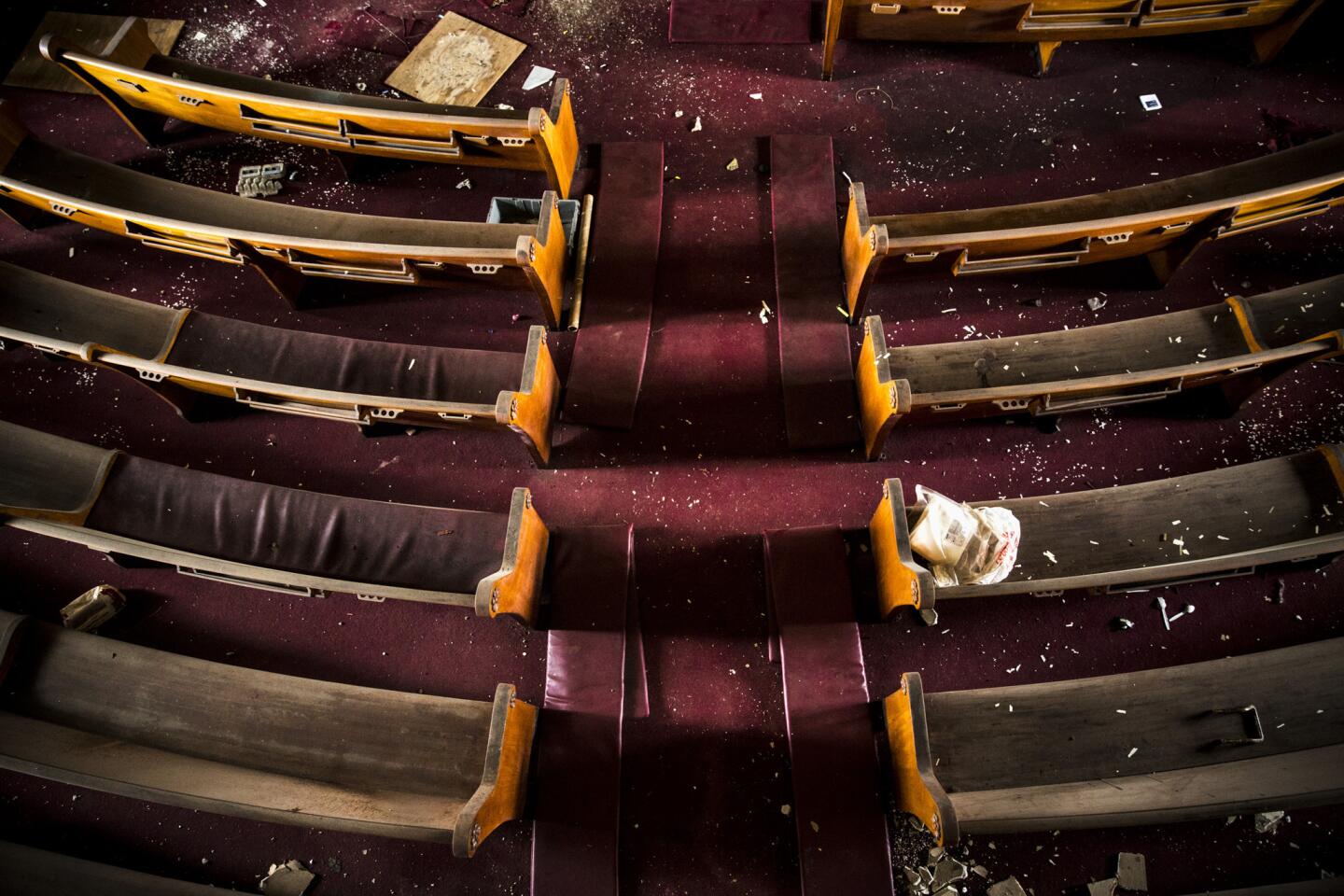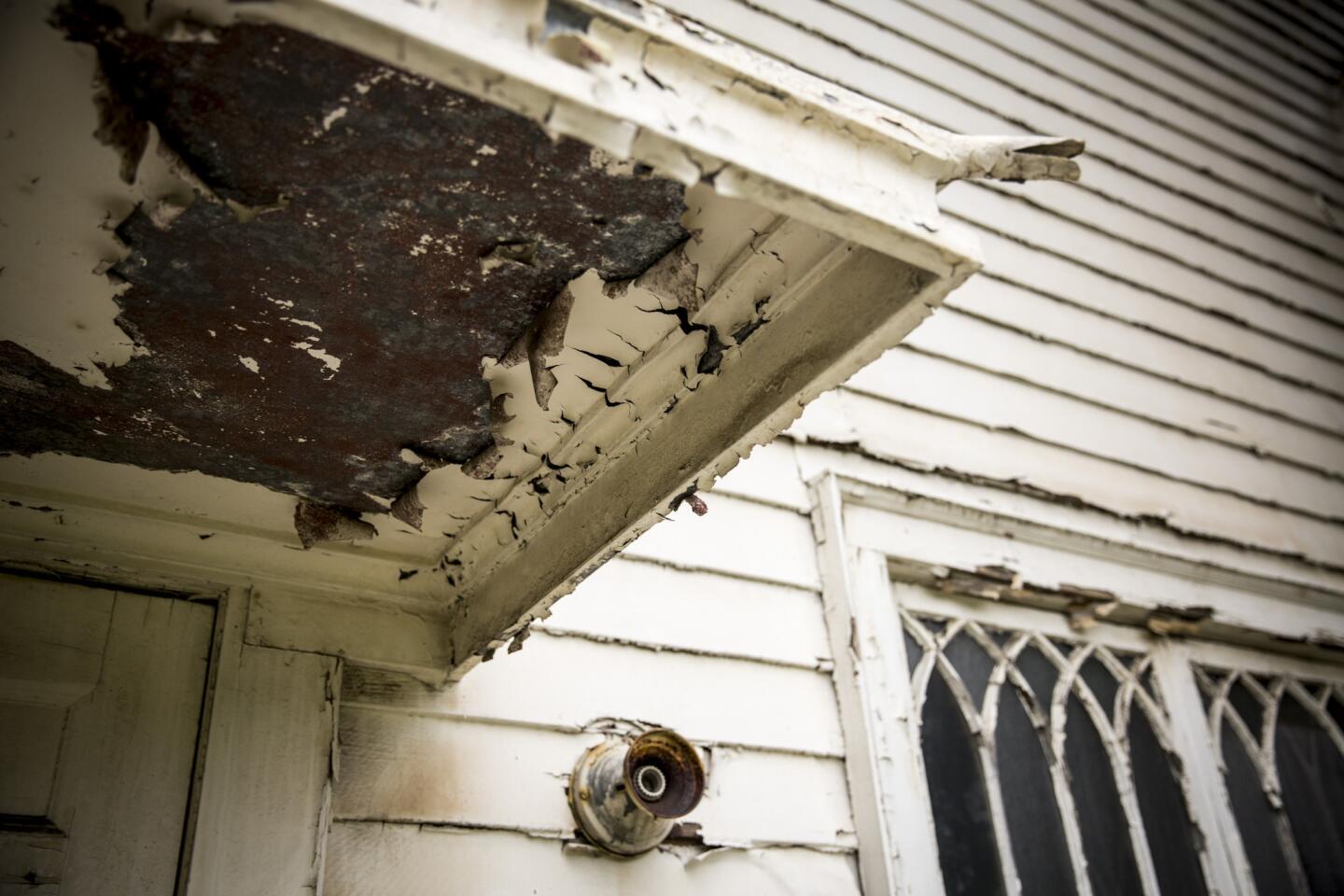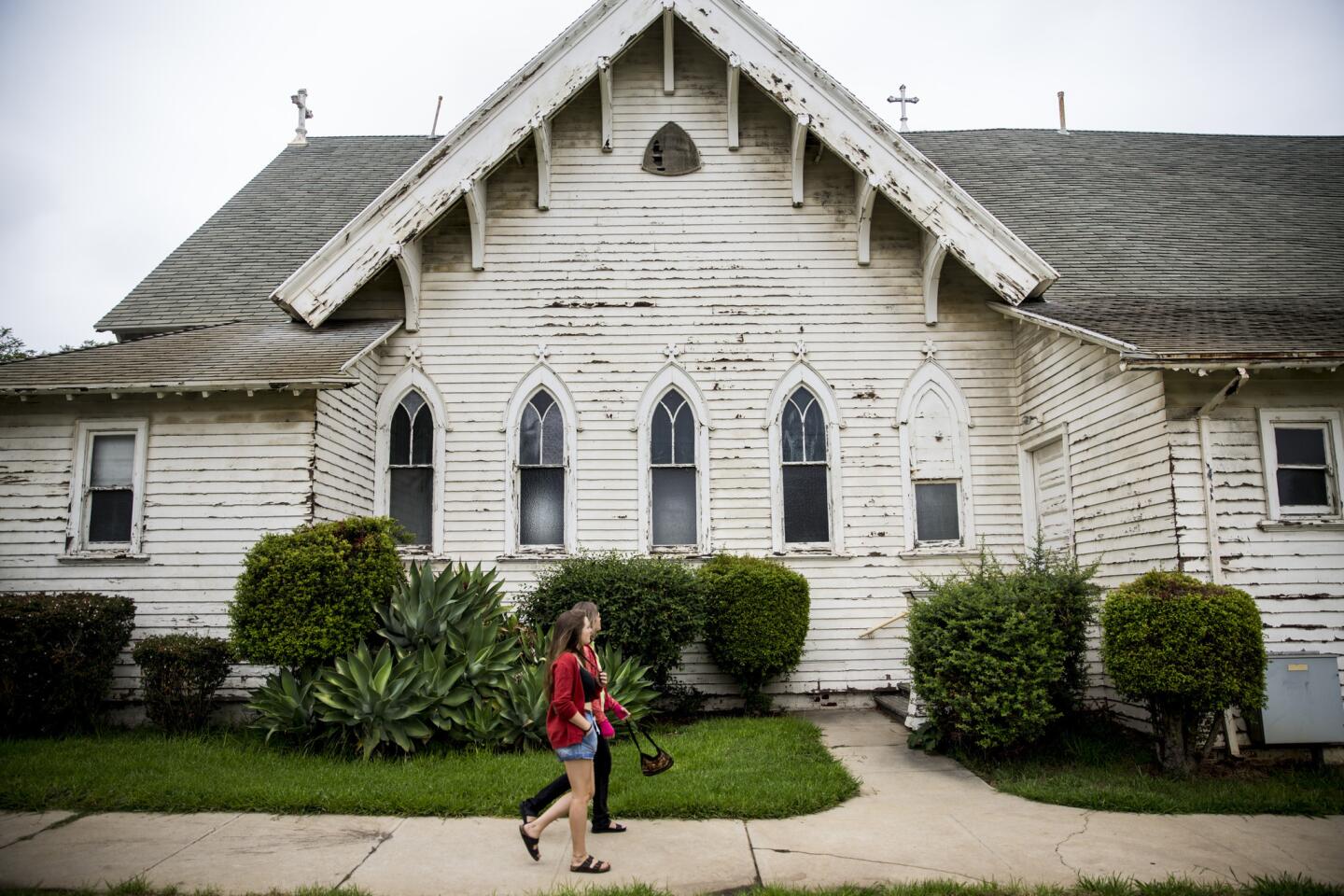VA proposes hundreds of housing units plus services for homeless vets at West L.A. campus
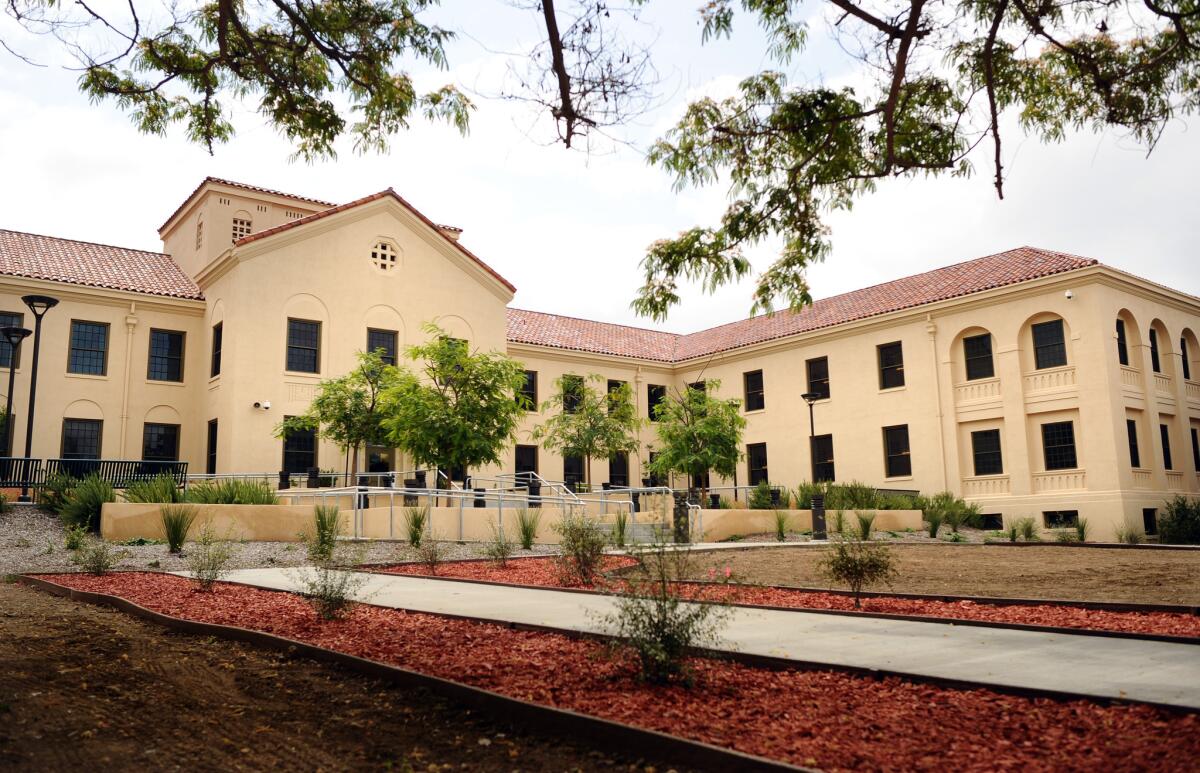
Veterans Affairs officials announced plans Thursday for extensive development of housing and services for veterans at the agency’s West L.A. campus, which recently refurbished its supportive housing.
- Share via
Federal officials released a blueprint Thursday for transforming the long-neglected West Los Angeles Veterans Affairs campus into a residential community with hundreds of housing units for homeless veterans, offering some potential relief as Los Angeles struggles to deal with an increase in homelessness across the city.
The plan calls for construction of 1,200 permanent supportive housing units for disabled and traumatized veterans and more than 700 short-term units for homeless veterans in the midst of some of the city’s toniest neighborhoods. Some permanent housing could open as soon as next year, officials said, perhaps by adapting some of the 388-acre property’s historic buildings.
The proposed new community would mark one of the most significant efforts to create new housing for the region’s rising homeless population, which is estimated to exceed 44,000 in Los Angeles County.
The proposal includes a village for women, many of whom suffered sexual trauma in the military, gardens where veterans can relax and grow their own food, theaters, sports fields and gym facilities.
Hammered out in months of meetings with veterans and community members, the project is also designed to serve as a beacon for non-homeless veterans, who can use the campus for recreation, cultural events and job development, as well as medical care, officials said.
“There’s amphitheaters, recreation facilities, everything for the physical health, the mental health and the spiritual health of veterans,” U.S. Department of Veterans Affairs Secretary Robert A. McDonald said at a news conference.
“They are going to try to make a community out of it,” said Steve Peck, president of U.S. Vets, a homeless veteran service group.
Mayor Eric Garcetti last year vowed to house all homeless veterans by the end of 2015, but has since pushed back that deadline to later this year. He said Thursday that the number of homeless veterans in the city had dropped to fewer than 800. A survey last year estimated that there were about 2,700.
Federal legislation must be approved to enable public-private partnerships to develop the housing. The development would be built on VA land and financed with public and private funds, backed by rent vouchers from the VA.
Officials said the housing and services, as well as hundreds of federal rent subsidies for veterans that have flooded Los Angeles in recent years, would reverse the area’s distinction as the homeless veteran capital of the nation.
“This is the first tangible proof that veteran homelessness is on its way to becoming an oxymoron in Los Angeles,” attorney Mark Rosenbaum of Public Counsel’s Opportunity Under Law said at the news conference.
The proposed development satisfies a year-old settlement with disabled and traumatized homeless veterans whom Rosenbaum and a team of lawyers represented in a long-running lawsuit over VA care.
The plan would establish a framework for specialized family support and legal centers, mental health and addiction treatment, and an education and enterprise center to help reintegrate veterans into the community.
The family and legal centers would be developed in conjunction with UCLA, McDonald said. The university’s Jackie Robinson Stadium has operated for years on the property at below-market rent of $60,000 a year.
Still to be decided is the fate of a city dog park, which operated rent-free and which some Brentwood residents and professional dog walkers had lobbied vigorously to keep. UCLA and the Brentwood School, whose athletic complex is on the land, also pursued a lobbying campaign in Los Angeles and Washington to maintain their lease rights.
“Those who have not become veteran-centric as we hope UCLA and the Brentwood School will be will have to leave,” said Vince Kane, McDonald’s senior advisor on homelessness.
In a written statement, UCLA said it had pledged to spend more than $1 million annually on the family center, an addiction treatment center and the legal clinic and $2 million over 10 years on recreation and mentoring programs. The university also said it would start new recreation and sports training programs, help with landscape and housing design and host a veterans baseball team at the stadium.
Some veterans were excited about the university and school sharing educational, health and sports facilities. But others assailed the VA, saying it had abandoned its promise to oust non-veteran tenants.
“Contrary to an exit, the illegal agreements were renegotiated to make them ‘legal,’ and the non-veteran occupants get to stay while our homeless veterans remain on skid row and back-alley squalor,” said Robert Rosebrock, a veteran who has campaigned for years on behalf of homeless veterans.
The sprawling campus, an oasis of rolling greens wedged between Westwood and Brentwood, is the largest undeveloped property on the Westside.
Deeded in 1888 as a home for old soldiers by Arcadia Bandini de Baker, it was occupied by 5,000 veterans after the Korean War, officials said. By the 1980s, most veterans had moved out, and blighted clapboard and stucco buildings stood largely empty.
In 2005, the VA commissioned a study calling for hotels, medical tech companies and residences on the site to fund medical services. Development opponents including former Mayor Richard Riordan asked that the property be turned into the “greatest park in the world.”
Congress stopped a sell-off, but 20 or more leaseholders — including a hotel laundry, bus parking and a movie studio storage lot — sprang up on the land.
A federal judge in August 2013 said the VA had abused its discretion by leasing land for purposes “totally divorced from the provision of heathcare.” The government and UCLA vowed to appeal the decisions.
Subsequent investigations uncovered rampant mismanagement, including underbilling of leaseholders and improper diversion of funds, according to a Government Accountability Office report. A federal investigation was opened.
Former VA Secretary Eric Shinseki, under fire for long wait times at VA medical facilities, was replaced in July 2014 by McDonald, who said Thursday that he immediately ended the suit and promised a new land-use plan.
“I couldn’t understand why a government agency responsible for caring for veterans was being sued by people for not doing their job,” McDonald said.
Jaded by the years of neglect, some veterans said the VA would bow to pressure from the land’s well-heeled and well-connected neighbors and drop much of the plan.
“The bottom line is Brentwood doesn’t want a bunch of one-eyed, one-legged veterans in raggedy clothes to bring down their property values,” said Dave Culmer, a former Marine and longtime veteran advocate.
Plan supporters acknowledged it would take years of oversight and advocacy to see the plan through.
“The building of the housing is key,” said former Santa Monica Mayor Bobby Shriver, who was also part of the legal team. “The secretary promised us to our faces it would happen.”
Jon Sherin, a doctor and former VA employee now working as a veterans advocate, said that the old soldiers’ home was there before Brentwood.
“If you don’t like the neighborhood, find a new home,” Sherin said.
Twitter: @geholland
More to Read
Sign up for Essential California
The most important California stories and recommendations in your inbox every morning.
You may occasionally receive promotional content from the Los Angeles Times.
